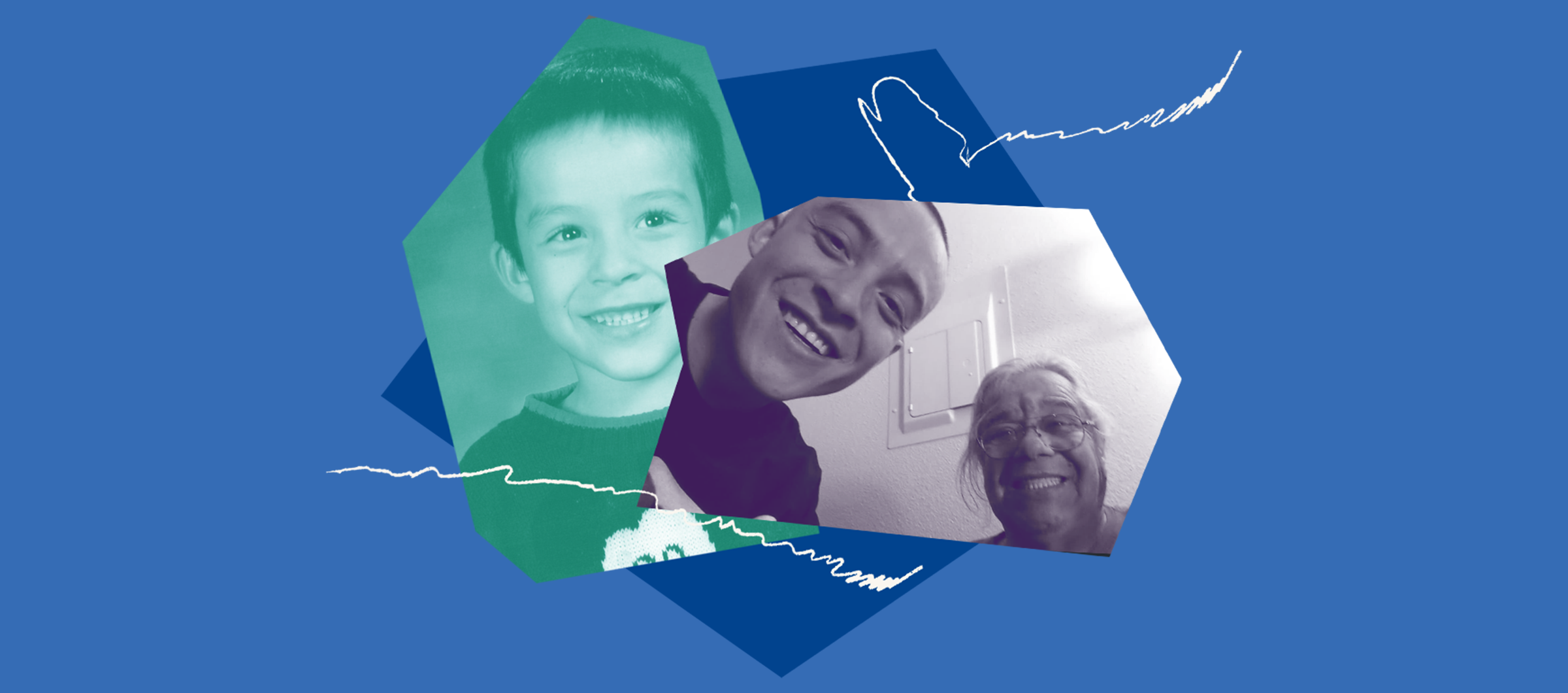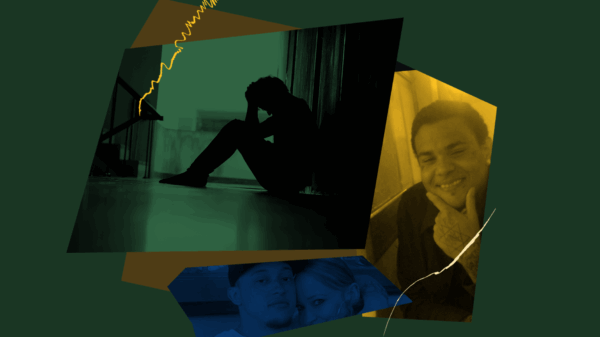Note: This blog is the final of a series based on interviews with three men currently held in the Penitentiary of New Mexico who are part of a class action lawsuit challenging the inhumane and unconstitutional conditions of New Mexico’s long-term solitary confinement unit.
When he was a kid, Mah-konce dreamed of studying the stars. He spent hours reading about space, certain he would become an astronomer. His other passion was music. He learned to play four instruments: trumpet, baritone, tuba, and guitar. Now, from prison, he is working on a faith-based book, determined to publish it before his release.
Mah-konce’s first arrest at 16 landed him in juvenile detention. At 20, he was sentenced to adult prison for the first time. Only a few months into his sentence, prison officials sent him to solitary confinement.
“That was the start of everything,” Mah-konce says. “The prison system treated me like I wasn’t worth anything. And over time, I started to believe them. Solitary rearranged the type of person I was.”
"The prison system treated me like I wasn’t worth anything."
Mah-konce has spent nearly four years in solitary confinement—almost half his sentence. This isolation left him with Post Traumatic Stress Disorder. He knows what solitary confinement does to people’s minds and their ability to maintain relationships with loved ones.
“I wanted to be part of this lawsuit because it's bigger than myself,” he says. “I've seen what solitary has done in my life. It would be nice to be part of something that would remedy it for others.”
Erosion of Relationships
Solitary confinement severely harms Mah-konce’s relationships outside of prison, and he has lost contact with many people he hoped to keep in his life. Prison staff have forced him to go up to an entire year without phone privileges, making staying in touch nearly impossible.
“Relationships are what get us through prison, being able to talk on the phone and write letters,” Mah-konce says. “When relationships come to an end, people on the streets can move on, but for us in here we can't—it really impacts us.”
People in the solitary confinement unit only get very limited phone calls and letters, forcing them to choose between the people important to them. This past year has been especially difficult for Mah-konce. His dad is sick, and the whole family is around him, but Mah-konce has limited ability to even communicate with them.
“When you do get to talk,” Mah-konce says, “it feels different—in this mundane world there’s no stimulation, so there's nothing to talk about. You've just been sitting staring at the walls. It kind of makes you not want to talk to people because you can't hold up your part of the conversation.” He says the only thing left to talk about is what’s going on internally, and that can be a grim conversation. “You don’t want to unload your emotional baggage on family.”
Cycle of Damage
The first time Mah-konce was in the solitary confinement unit, the corrections department released him directly from the unit into the community, giving him no rehabilitative services or support to help with this extreme transition. When he returned home, his family saw how solitary confinement had changed him.
"How can you explain to a child that you’ve been in solitary confinement for years?"
“I couldn't relate to anyone,” he says. “I got a job but couldn't interact with anyone. People would come around, they would have birthdays, but I couldn't be around anyone. I couldn't show emotion.” Mah-konce found it almost impossible to explain to anyone in his life the profound harm that solitary confinement had caused. “How do you explain how sitting in a room doing nothing can be so traumatic, have so much negative impact and ruin your life? It can destroy your brain and affect your heart.”
He was also heartbroken to discover he had a hard time connecting with his daughter, who is now 10. “I love her. But I didn’t know how to express myself to my own child. How can you explain to a child that you’ve been in solitary confinement for years?”
Emotional Isolation
Part of the torture of solitary confinement is not just the physical but the emotional isolation as well.
“In here, you're so separated from people, you have to take it to the next extreme—you have to isolate yourself emotionally,” Mah-konce says. “You wake up and you want to reach out because you're so depressed, but you can't. Not only can you not touch someone and be around people, but you also can't reach out emotionally because it's frowned upon here.”
“We’re all broken here but we can’t show it.”
Being held in the solitary confinement unit, often described as a “supermax,” reshapes how people see themselves. When the prison system treats people as intrinsically bad and unredeemable, some eventually begin to believe it themselves. Yet beneath that exterior, everyone is carrying deep wounds. “You realize it’s not a place of the toughest people,” Mah-konce says. “We’re all broken here but we can’t show it.”
During his time in the unit, Mah-konce has witnessed multiple people attempt suicide, a common impact of solitary confinement. “When you’re already feeling the same way, but you don’t want to acknowledge those feelings, seeing someone else act on them deepens the pain,” Mah-konce says. Despite the trauma of these moments, neither he nor others in the unit received any professional support afterwards.
Mah-konce says his parents were supportive and provided him with a loving home. He believes that, had it not been for the years he spent in solitary confinement, he could have long ago been rehabilitated and “found his way back” from the troubled path that landed him in prison. But the damage long-term solitary confinement caused him changed that. “This unit is what broke me,” Mah-konce says. “Out of my whole life, it was the defining moment.”
"There’s another way to do our time."
What They Need
Mah-konce has seen how many men in prison have never been exposed to anything beyond the violent dynamics of the system. “They just need someone to plant the seed that there’s another way to do our time,” he says. But once individuals have been in the solitary confinement unit, no matter what they do, the system continues to place them back in units with the fewest opportunities to grow.
Mah-konce wants people like him to be allowed to participate in programming—like the dog training program or the commercial driver’s license program. “Some people might see that as rewarding someone for getting in trouble,” he says, “but when they see someone who has a bad record, why not put them into a program and find out if it would help? Solitary confinement only makes things worse."




